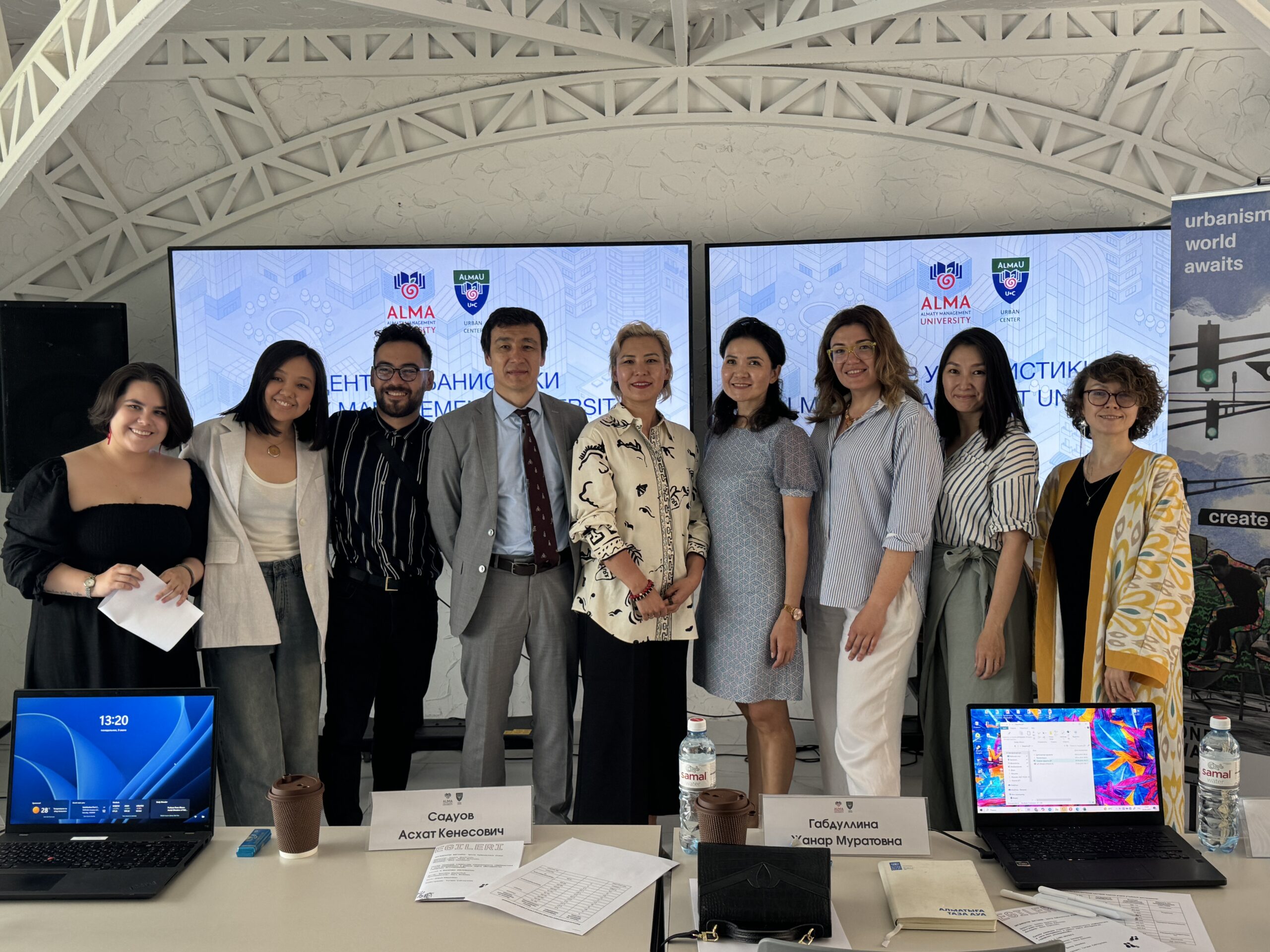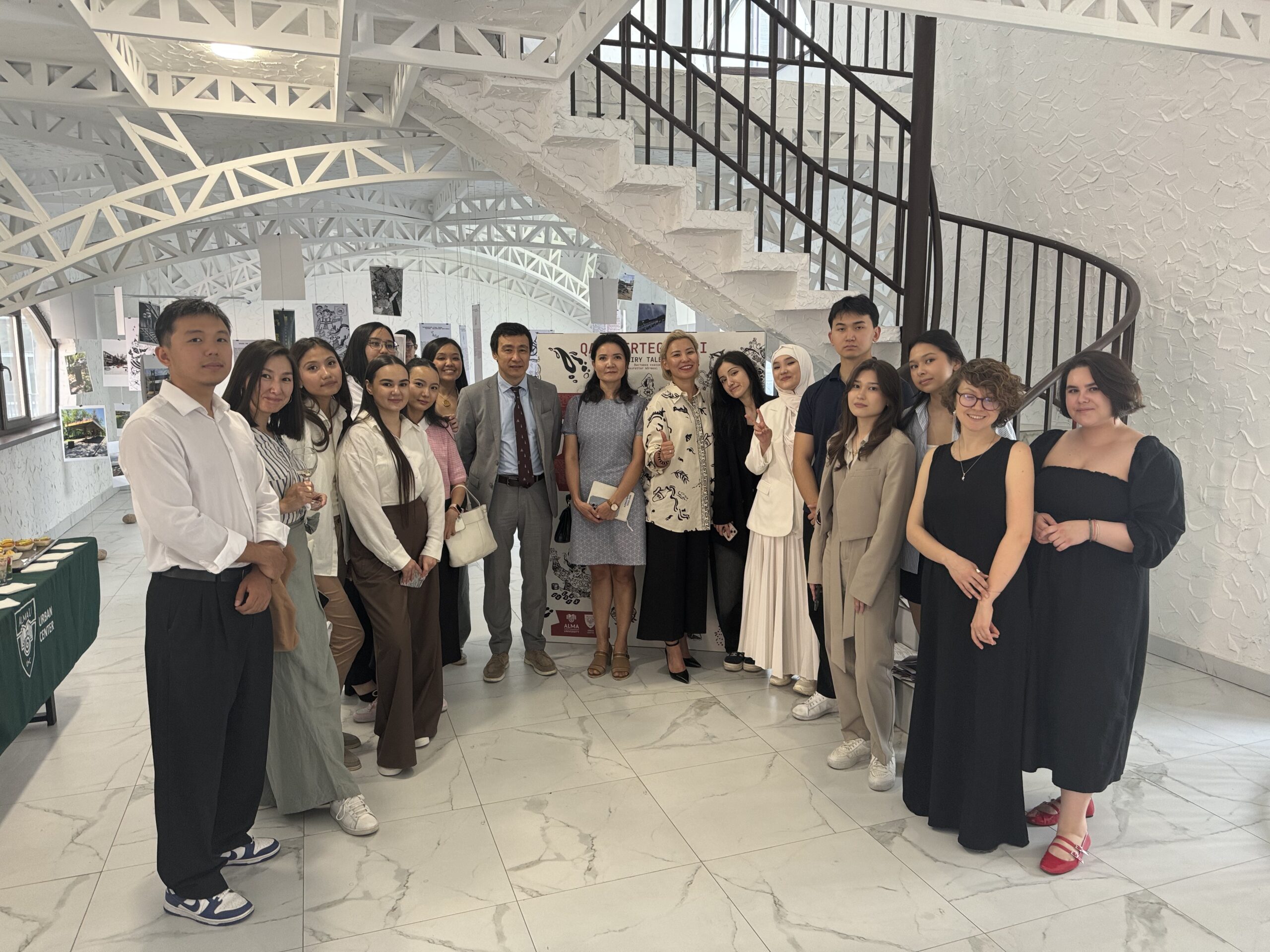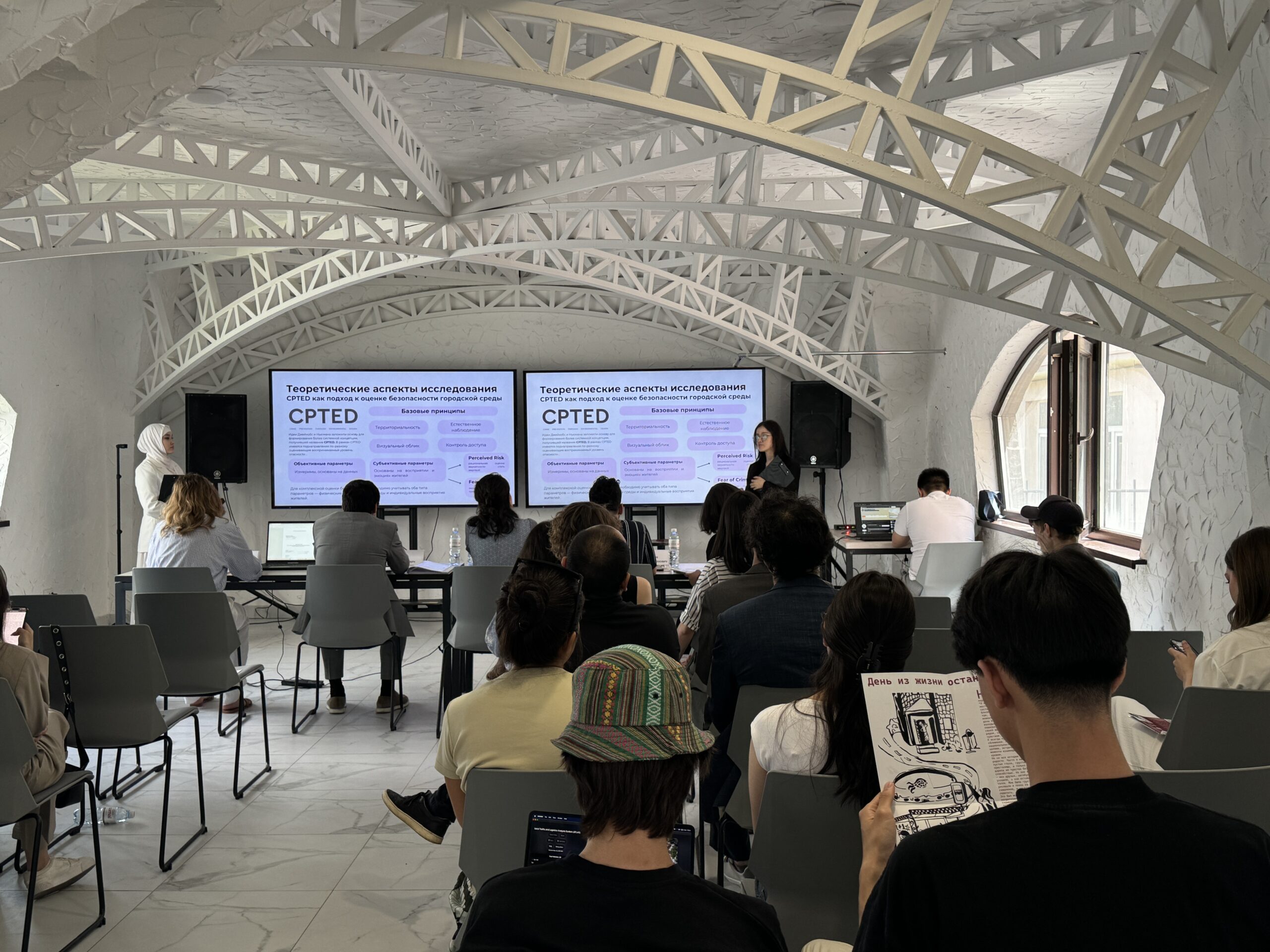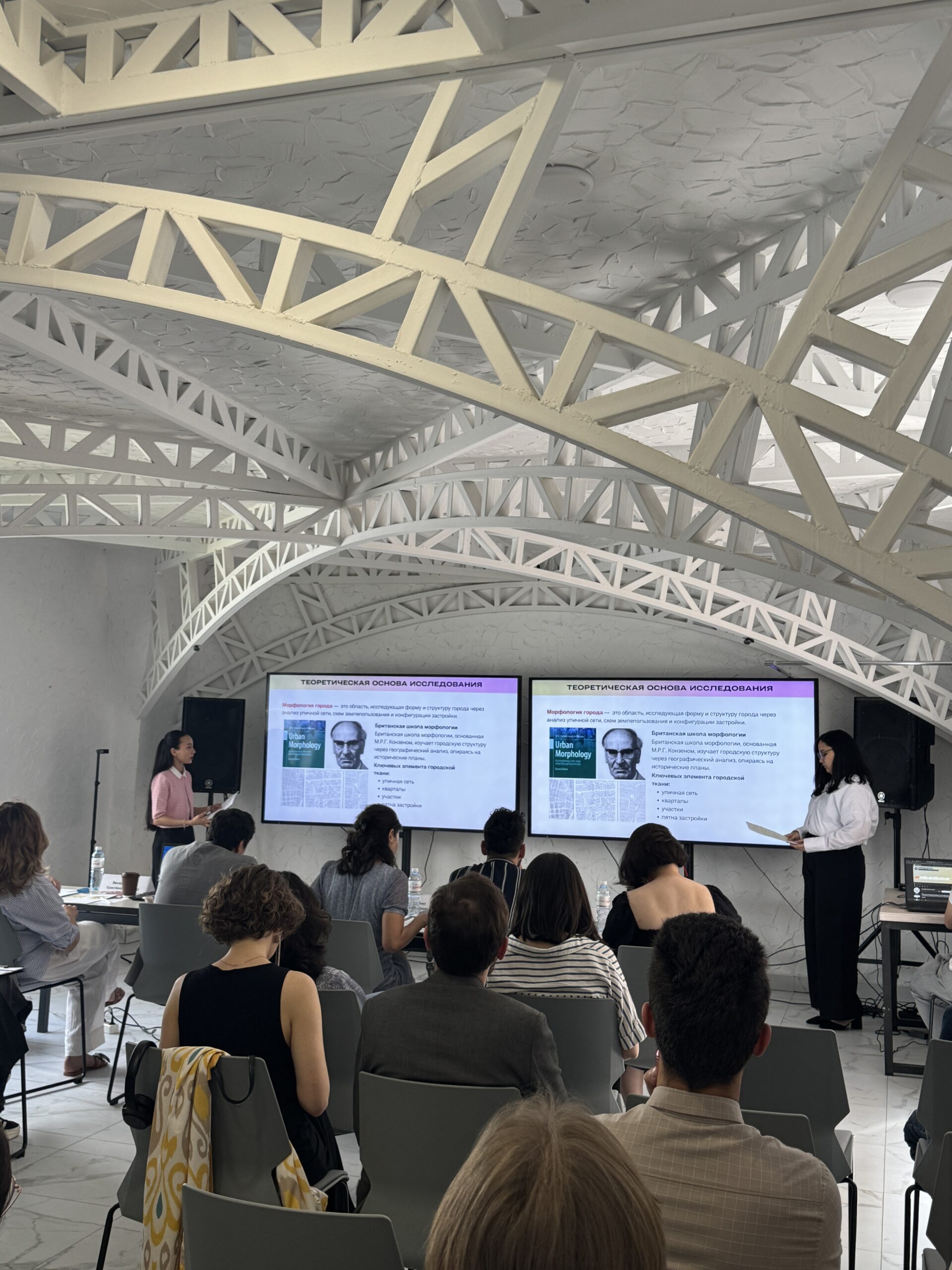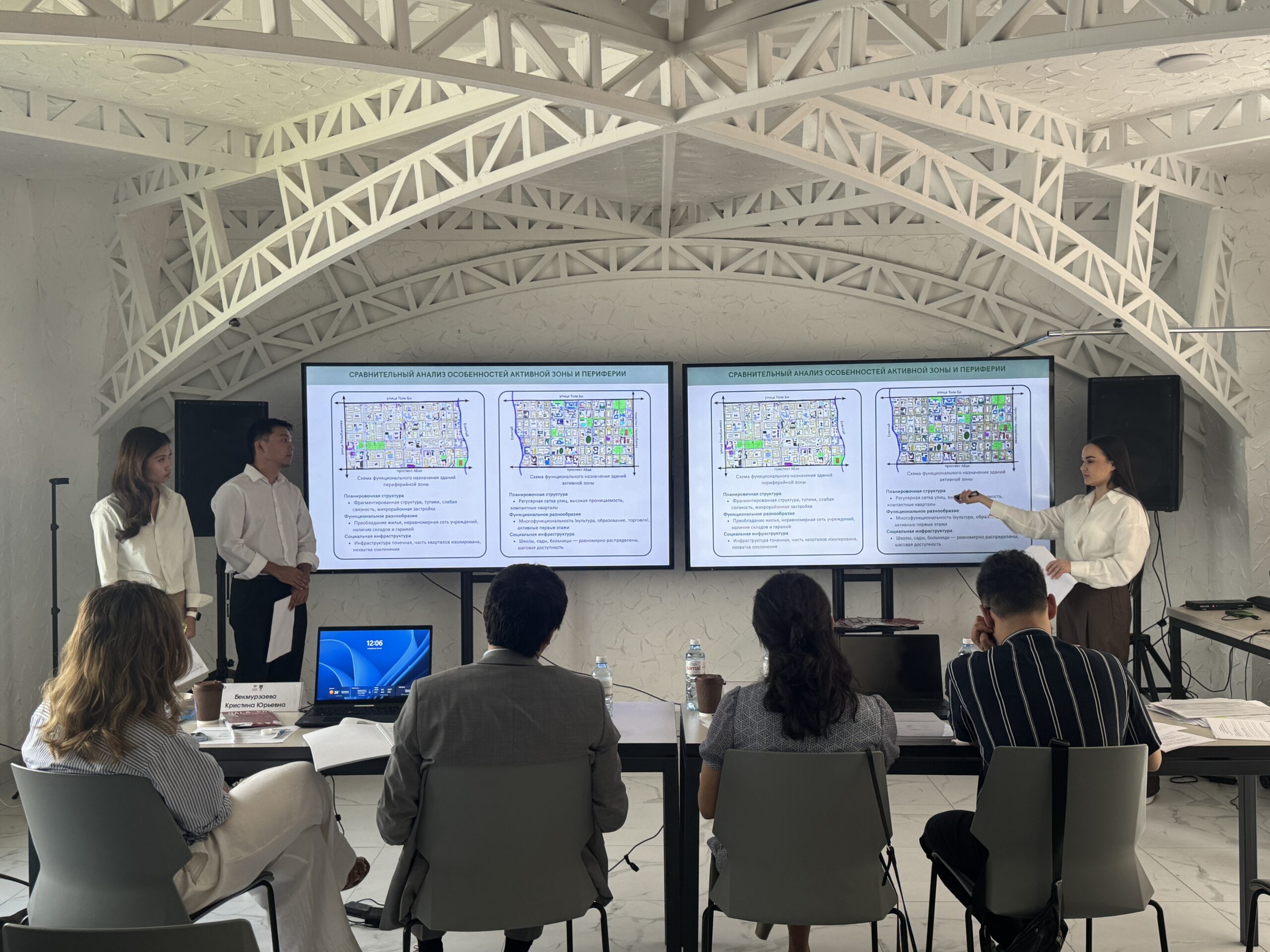On June 9, in Almaty, students from the third graduating class of the “Urban Studies and City Management” program at Almaty Management University publicly defended their diploma projects. The uniqueness of the event was marked not only by the high quality of the graduates’ work but also by the setting — the defense was held in the iconic building designed by renowned Kazakhstani architect Saken Narynov. The building’s architecture harmoniously emphasized the essence of the presented projects.
The attestation committee included leading urban experts. The committee was chaired by Askhat Saduov, General Director of the Almatygenplan Research Institute. Other members included Zhanar Gabdullina, Deputy Chairperson of the Almaty City Development Center; Kristina Bekmurzaeva, Member of the Almaty City Maslikhat; and Chingis Aytzhanov, Head of the Urban Research Laboratory at KazGASA. Their presence highlighted the high recognition of the program and its importance to the city’s development.
The open format of the defense attracted not only professionals but also engaged citizens. The audience included experts from various fields, students, architects, urbanists, and concerned residents. A special moment was the visit of Nurlan Buranbaev, Chief Architect of Almaty, who chaired the committee last year. He noted the noticeable improvement in the quality of the projects, calling it a clear indicator of the program’s growth.
Alongside the defense, an exhibition showcased the graduates’ academic projects. The central exhibit was a research project presented as fairy tales about urban spaces — a unique format combining text with original illustrations by a guest artist. The exhibition also featured photographs taken by students of the Satbayev University Faculty of Architecture as part of the “Architectural Illustration” course, along with visual works by alumni of previous years. Despite its compact scale, the exhibition was rich in content and visually compelling, seamlessly integrating into Narynov’s architectural space.
The public defense and exhibition served not only as the conclusion of the academic journey but also as a significant urban event reflecting the core values of the program: interdisciplinarity, openness, critical thinking, and cultural context awareness. This event once again confirmed the role of the “Urban Studies and City Management” program as a leading platform for training the next generation of professionals shaping the future of Kazakhstan’s cities.
